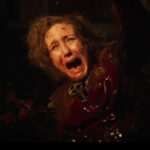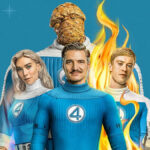When it comes to groundbreaking and influential films, few can match the impact of Quentin Tarantino’s 1994 masterpiece Pulp Fiction. With its non-linear storytelling, unforgettable characters, razor-sharp dialogue, and stylized violence, Pulp Fiction redefined the crime genre and launched a new era of independent cinema.
If you’re a fan of Pulp Fiction’s unique blend of crime, comedy and cool, here are 16 other must-watch movies that capture a similar vibe and style:
1. Get Shorty (1995)
Get Shorty stars John Travolta (fresh off his Pulp Fiction comeback) as Chili Palmer, a smooth-talking loan shark who finds himself drawn into the wild world of Hollywood moviemaking. Directed by Barry Sonnenfeld and based on an Elmore Leonard novel, the film is a clever, funny look at the parallels between the movie business and the criminal underworld.
With a stellar supporting cast including Gene Hackman, Rene Russo and Danny DeVito, Get Shorty is a spiritual successor to Pulp Fiction in many ways. It has the same effortlessly cool dialogue, colorful characters, and fascination with the intersections of crime and pop culture. Travolta is at the top of his game as the slick Chili Palmer, a role that solidified his post-Pulp resurgence[1].
2. Jackie Brown (1997)
Tarantino’s follow-up to Pulp Fiction was this more understated but equally compelling Elmore Leonard adaptation. Jackie Brown stars Pam Grier as a flight attendant caught between the cops and a ruthless arms dealer, played with serious menace by Samuel L. Jackson.
While not as flashy or self-referential as Pulp Fiction, Jackie Brown showcases Tarantino’s gift for character, dialogue and suspense. Grier is a revelation in the title role, creating a hero for the ages, and Robert Forster nearly steals the film as a world-weary bail bondsman. The film is both an homage to 1970s blaxploitation cinema and a subversion of it, cementing Tarantino’s reputation as a master of genre reinvention[2].
3. The Usual Suspects (1995)
Bryan Singer’s labyrinthine neo-noir shares Pulp Fiction’s fractured timeline, large ensemble cast, and air of stylish menace. The film follows five criminals brought together for a police lineup who decide to pull a lucrative heist. But all is not as it seems, as their plans go awry and they find themselves pursued by both the law and a mythical underworld kingpin.
The Usual Suspects is a puzzle box of a movie, with a narrative that loops back on itself and an unreliable narrator who keeps both the characters and audience guessing. Like Pulp Fiction, it’s endlessly rewatchable, with each viewing revealing new layers. The cast, led by Gabriel Byrne, Benicio del Toro, and Kevin Spacey, is uniformly excellent, and the final twist is one for the ages.
4. Reservoir Dogs (1992)
Tarantino’s directorial debut set the template for his brand of talky, pop culture-obsessed criminals and achronological storytelling. Reservoir Dogs follows a group of thieves, known only by color-coded pseudonyms, as a simple diamond heist goes violently wrong.
Shot on a shoestring budget, the film compensates with style, verve and instantly quotable dialogue. The cast, including Harvey Keitel, Tim Roth, Michael Madsen, and Steve Buscemi, is a murderer’s row of 90s indie talent. While not as ambitious in scope as Pulp Fiction, Reservoir Dogs is leaner and meaner, a shotgun blast of raw filmmaking bravado[3].
5. True Romance (1993)
Written by Tarantino but directed by Tony Scott, True Romance is a wild, violent, darkly funny ode to lovers on the run. Christian Slater and Patricia Arquette play Clarence and Alabama, a comic book store clerk and call girl who fall in love, steal a suitcase full of mob cocaine, and blaze a trail of mayhem across the country.
True Romance has Tarantino’s fingerprints all over it, from the rapid-fire pop culture references to the gleeful violence and profane, poetic dialogue. But Scott’s slick, hyperkinetic direction elevates the material, and the supporting cast – including Dennis Hopper, Christopher Walken, and a young Brad Pitt – is a blast. It’s like Pulp Fiction’s wilder, more romantic cousin.
6. Lock, Stock and Two Smoking Barrels (1998)
Guy Ritchie’s breakout hit transplants Tarantino’s style to the British underworld, with dizzyingly entertaining results. The film follows four friends who pool their money to enter a high-stakes poker game, only to find themselves in debt to a vicious crime lord. Their attempts to pay off the debt entangle them with a sprawling cast of colorful criminals.
Like Pulp Fiction, Lock, Stock is a dizzying juggling act of intersecting plotlines, memorable characters, and stylized violence. Ritchie keeps the pace brisk and the tone lively, even as the body count mounts. The cast, including a young Jason Statham and Vinnie Jones, tears into the profane, cockney-accented dialogue with gusto[4].
7. Snatch (2000)
Ritchie’s follow-up to Lock, Stock is even more Tarantino-esque, with its large ensemble cast, interconnected storylines, and irreverent mix of humor and violence. The plot revolves around a stolen diamond that draws an assortment of colorful characters, from Russian gangsters to Irish Traveller boxers to a ruthless crime boss played by Alan Ford.
Snatch is a delirious, hyperkinetic romp that never slows down to catch its breath. The cast is game for anything, especially Brad Pitt as an unintelligible bare-knuckle fighter and Benicio del Toro as a hapless thief. Like Pulp Fiction, it’s a film that rewards multiple viewings, as the dizzying plot and rapid-fire dialogue reveal new gems each time.
8. Go (1999)
Doug Liman’s underrated gem applies the Pulp Fiction formula to the rave scene of the late 90s. The film follows three interconnected storylines over the course of a drug-fueled night in Los Angeles: a supermarket clerk trying to score ecstasy, a soap opera actor and his wife on a dinner date gone wrong, and a pair of friends caught up in a drug sting.
Go captures the manic energy and shifting perspectives of Pulp Fiction, with each storyline adding a new wrinkle to the larger picture. The young cast, including Sarah Polley, Katie Holmes, and Timothy Olyphant, brings a fresh energy to the material, and Liman directs with style and wit. It’s a perfect time capsule of the late 90s that still feels fresh and exciting today.
9. City of God (2002)
Fernando Meirelles’ searing crime epic may seem a world away from the pop culture-soaked universe of Pulp Fiction, but it shares Tarantino’s skill at weaving together multiple storylines and characters into a cohesive whole. Set in the favelas of Rio de Janeiro over three decades, City of God follows the intersecting lives of two boys: Rocket, who dreams of becoming a photographer, and Lil Zé, who rises to become a ruthless drug kingpin.
City of God is a blistering, hyper-stylized look at the cycle of violence and poverty that grips the favelas. Meirelles directs with a kinetic, almost documentary-like energy, immersing us in the world of his characters. Like Pulp Fiction, it’s a film that finds moments of dark humor and humanity amidst the brutality, and its impact lingers long after the credits roll[5].
10. Amores Perros (2000)
Alejandro González Iñárritu’s feature debut is a searing triptych of stories set in Mexico City, all connected by a devastating car crash. The first follows a young man involved in underground dogfighting, the second an affluent woman having an affair, and the third a homeless man who finds redemption in an unexpected place.
Like Pulp Fiction, Amores Perros uses its fractured narrative to explore themes of violence, redemption, and fate. Iñárritu directs with a gritty, handheld style that puts us in the middle of the action, and the performances are raw and powerful. It’s a film that doesn’t flinch from the darkness of its world, but finds glimmers of hope and beauty amidst the despair.
11. Goodfellas (1990)
Martin Scorsese’s mob epic may have preceded Pulp Fiction by a few years, but its influence can be felt throughout Tarantino’s filmography. Based on the true story of Henry Hill, a former member of the Lucchese crime family, Goodfellas follows Hill’s rise and fall in the mafia over three decades.
Like Pulp Fiction, Goodfellas is a master class in storytelling, with Scorsese’s kinetic direction and Nicholas Pileggi’s sharp screenplay bringing the world of the mafia to vivid life. The cast, led by Ray Liotta, Robert De Niro, and Joe Pesci, is uniformly excellent, and the film’s set pieces – from the famous “Layla” montage to the nerve-shredding “funny how?” scene – are the stuff of legend.
12. The Usual Suspects (1995)
Bryan Singer’s twisty neo-noir heist film shares Pulp Fiction’s love of non-linear storytelling and unreliable narrators. The film follows five criminals brought together for a police lineup who decide to pull a lucrative heist. But all is not as it seems, as their plans go awry and they find themselves pursued by both the law and a mythical underworld kingpin.
The Usual Suspects keeps the audience guessing until the very end, with a narrative that doubles back on itself and a cast of characters who are never quite what they seem. The ensemble cast, led by Gabriel Byrne, Kevin Spacey, and Benicio del Toro, tears into the meaty roles with gusto, and Singer directs with a sleek, stylish touch that keeps the tension mounting until the unforgettable final reveal.
13. Sin City (2005)
Robert Rodriguez and Frank Miller’s hyper-stylized adaptation of Miller’s noir comic series shares Pulp Fiction’s love of over-the-top violence and larger-than-life characters. Set in the fictional Basin City, the film weaves together three stories of crime, corruption, and revenge, all soaked in a stark black-and-white color palette with splashes of lurid color.
Like Pulp Fiction, Sin City revels in its own artificiality, using its comic book aesthetic to create a world that’s both heightened and strangely believable. The cast, including Bruce Willis, Mickey Rourke, and Jessica Alba, sinks their teeth into the pulpy dialogue and extreme characters, and Rodriguez directs with a kinetic, anything-goes energy that matches Miller’s visuals panel for panel.
14. Run Lola Run (1998)
Tom Tykwer’s breakneck thriller takes the non-linear storytelling of Pulp Fiction to dizzying new heights. The film follows Lola, a young woman in Berlin who has 20 minutes to come up with 100,000 Deutschmarks to save her boyfriend’s life. The film plays out three different versions of Lola’s race against time, each with wildly different outcomes.
Run Lola Run is a pure adrenaline rush of a movie, with Tykwer’s frenetic direction and Franka Potente’s fierce performance as Lola keeping the audience on the edge of their seats. Like Pulp Fiction, it’s a film that plays with the conventions of storytelling, using its looping structure to explore the role of chance and fate in our lives.
15. Smokin’ Aces (2006)
Joe Carnahan’s over-the-top action comedy assembles a rogues’ gallery of colorful assassins, all converging on a Lake Tahoe hotel to take out a mob informant. The cast is a who’s who of mid-2000s cool, including Ryan Reynolds, Ray Liotta, and a scene-stealing Ben Affleck as a bail bondsman with a penchant for disguise.
Smokin’ Aces takes the pop culture-infused criminal underworld of Pulp Fiction and cranks it up to 11, with hyperkinetic action, profane dialogue, and a convoluted plot that keeps the audience guessing. Carnahan directs with a manic, anything-goes energy that matches his characters’ adrenaline-fueled antics, and the film’s climax is a glorious, bullet-riddled free-for-all[6].
16. The Boondock Saints (1999)
Troy Duffy’s cult classic follows two Irish Catholic brothers in Boston who become vigilantes after killing a Russian mob boss in self-defense. With the help of their friend, a eccentric FBI agent played by Willem Dafoe, they embark on a mission to rid the city of evil, one criminal at a time.
The Boondock Saints shares Pulp Fiction’s love of stylized violence, irreverent humor, and memorable dialogue. Duffy’s script is a profane, darkly funny delight, and the performances by Sean Patrick Flanery, Norman Reedus, and Dafoe are pitch-perfect. The film’s over-the-top action sequences and unapologetic embrace of its own ridiculousness have made it a beloved cult classic.
These 16 films are just a small sampling of the many movies that have been influenced by or share a kinship with Pulp Fiction. From crime thrillers to dark comedies to action extravaganzas, they all capture something of the film’s unique blend of style, humor, and storytelling.
Whether you’re a die-hard Tarantino fan or just looking for a great movie to watch, these films are sure to entertain, provoke, and keep you on the edge of your seat. So grab some popcorn, settle in, and get ready for a wild ride through the twisted, violent, and endlessly fascinating world of pulp cinema.





